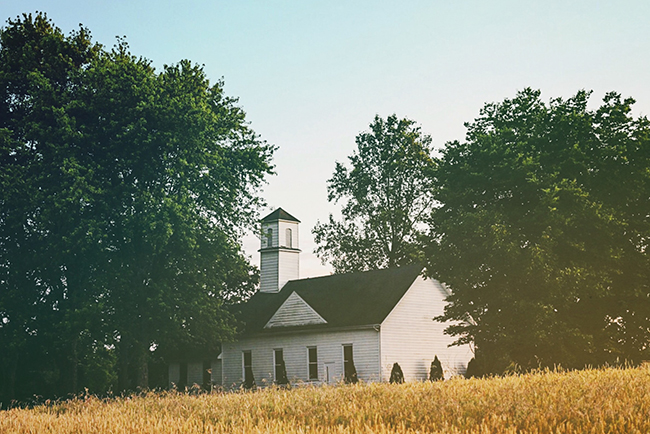
Although only 10% of churches have more than 250 people and 70% have 100 or fewer, I won’t quibble on the reality that “typical” or “normative” is a better descriptor than “small” for churches that run fewer than 250 in attendance. The vast majority of churches are small in attendance. But there seem to be a few myths about the pastors who lead them.
Your mileage may vary, but people have said or implied to me each of the myths I’ll bust in this article on multiple occasions and in various contexts. Maybe you’ve heard them or even thought or said them yourself. Whatever your role, whatever your context, let’s take a moment to bust some of these myths wide open.
Myth #1: We’re second class
Every church in every context has challenges. A small church pastor’s pain point may be different than a large church pastor’s. And a pastor in the middle of nowhere may have different struggles than the guy who shares a parking lot with Chick-fil-A in the city.
However, those who pastor small churches, particularly small churches in rural towns, are not second class or a tier below pastors of large churches in metropolitan areas. We’re not dumb; we’re different.
It’s not as if the pastors of large churches in the city have made it to the “Big Show,” the Major League, while the guys in unknown towns with a handful of people are in the minor league. It’s not second class, and it’s not a step down; it’s just different.
In one day in my role as the associational missionary of Collin Baptist Association, I worked with the pastor of a church with nearly 20,000 in average attendance and one whose church averages about 80. While one may have a greater reach and platform, neither are more or less significant in God’s kingdom.
After all, a fill-in preacher of a small Methodist church led the “Prince of Preachers” Charles Spurgeon to Jesus. Dear pastor, whether you lead a big or small church in the big city or the middle of nowhere, you matter to God and the kingdom—no matter your so-called influence or platform on earth.
As John Wesley said, “Give me one hundred preachers who fear nothing but sin and desire nothing but God, and I care not a straw whether they be clergymen or laymen, such alone will shake the gates of hell and set up the kingdom of heaven upon earth.” Big church, small church, full-time, or bi-vo––none are greater or lesser in God’s eyes.
Myth #2: We lack capacity
Similarly, the pastor of a large church is not necessarily a higher-capacity leader than the pastor of a small church. As the pastor of a previously unknown church in the middle of the mountains in rural New Mexico, I wore every hat there was to wear––preacher, song leader, janitor, audio/video tech, and more.
My choice to serve in the so-called “middle of nowhere” was not because I lacked the capacity to serve a large church in the city. I didn’t serve a small church because I had leadership weaknesses or lacked creativity. I served in the middle of nowhere because God called me there!
Just as pastoring a small church in a small town is not a second-class ministry, it also doesn’t signal a lack of ability to be in a big church in the heart of any big city. In fact, while the small church pastor’s “breadth” may be numerically tiny, the need for him to have a greater breadth of expertise as a solo pastor tells me he has just as much capacity or ability as the pastor of the largest church in America.
Myth #3: We hate it here and want to leave
The final myth ties the other two together. Not only are small church pastors not second-class ministers nor lacking the capacity to lead larger churches, but many simply believe they’re called to serve and lead smaller churches in smaller towns and have no desire to leave.
There are exceptions, like a “moving up” mindset that leads some pastors to use various churches as stepping stones to their desired destination. But I call those exceptions for a reason. Most small church pastors I know love leading their churches. And they do so with distinction and zero desire to “advance” to “bigger and better” pastures.
I was often asked how long I’d “waste” as the pastor of a small church in New Mexico. Only an ailing father led me to an openness to leave. This pulled me kicking and screaming out of my role there and into a new role as an associational missionary.
Some may view my new role as “moving up.” But I only see it as a different role God is using in different ways. Pastor (and Christian), there is no insignificant ministry, whether you serve behind the scenes and out of the limelight or in the most prominent church on the planet. Just be faithful wherever God calls you, and be content to stay there until He takes you elsewhere.
Finally, to the small church pastor, especially, you are seen and known today. Your worth is not in your Twitter reach or how many you have in the pews but in Christ. To the larger church pastor, don’t look down on small church pastors. View them as crucial leaders in God’s work to advance His kingdom.
This article originally appeared at lifewayresearch.com. For more insights on church and culture and practical ministry helps from Lifeway Research, sign up for their Daily Insights newsletter.
















